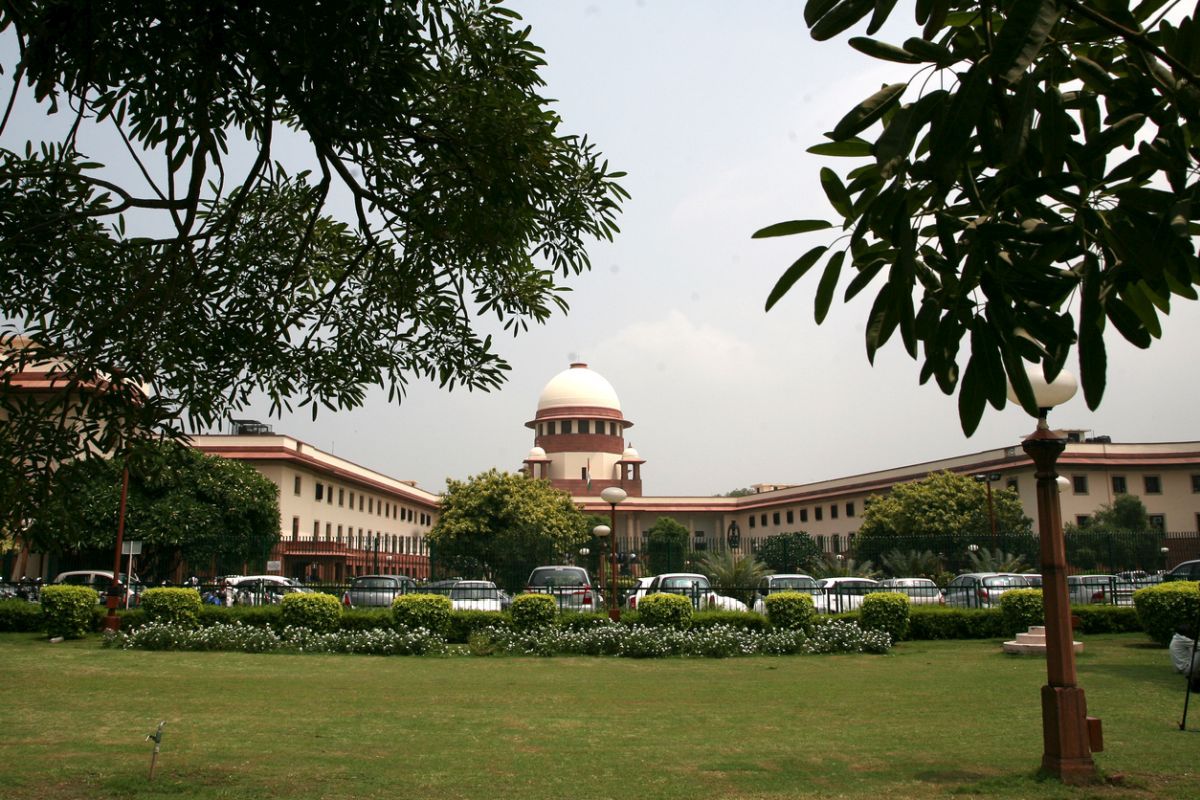UP set to become $1 trillion economy by 2029: CM Yogi
Uttar Pradesh Chief Minister Yogi Adityanath stated that the state is rapidly progressing toward becoming India’s largest economy.
A five-judge Constitution bench, headed by Chief Justice Ranjan Gogoi, said the inferences from the Archeological Survey of India (ASI) report were drawn by “cultivated and studied minds.”

Supreme Court (Photo: Getty Images)
The Friday hearing of the on-going Ayodhya Ram Janmabhoomi-Babri Masjid case revolved around the 2003 Archaeological Survey of India report on the excavations at the Babri Masjid site. The Court told the Muslim Parties’ counsel that the report was not an “ordinary opinion” as the archaeologists were acting on behalf of the Allahabad High Court judges to give their views on the excavated material.
A five-judge Constitution bench, headed by Chief Justice Ranjan Gogoi, said the inferences from the Archeological Survey of India (ASI) report were drawn by “cultivated and studied minds.”
Advertisement
The apex court’s observation came when senior lawyer Meenakshi Arora, appearing for the Muslim parties, told the apex court that the ASI report was “merely an opinion” of archeologists which needed to be supported by substantial proof to establish that a Ram temple already existed at the disputed site at Ayodhya. Arora told the bench that the report cannot be held as a “substantive proof.”
Advertisement
“The 2003 ASI report is a weak evidence and needs corroboration with the substantive evidence,” the senior lawyer told the bench which also comprised Justices SA Bobde, DY Chandrachud, Ashok Bhushan and S Abdul Nazeer.
She said the report was not binding on the court as it was only “advisory” in nature.
“This (ASI report) is just an opinion and no definitive conclusion can be drawn from it,” she told the bench which was hearing the Ayodhya land dispute case for the 33rd day.
Ms Arora said archeologists were asked to give their report as to whether Ram temple existed at the site or not. “At the highest the structure was akin to a north Indian temple,” she said referring to the report’s conclusions.
She also stated that at some place in the ASI report it has been said the Ram Chabutra in the outer courtyard was probably a water tank.
“There are a lot of assumptions and presumptions in this report and the court is not bound to accept it which is advisory in nature and amounted to just an opinion,” she said.
Another senior advocate Shekhar Naphade appearing for Muslim parties, advanced his arguments on legal principles of “res judicata.”
This principle under the civil law deals with the fact that a same nature of dispute cannot be adjudicated upon twice in a court of law.
Naphade said that in 1885, one Mahant Raghuvar Das had filed a law suit seeking permission to construct a Ram temple within the disputed premises. This plea was rejected by the court then.
Referring to the res judicata principle, the senior lawyer said that now the Hindu parties are barred under the law to re-agitate the same dispute.
On Thursday, the Muslim parties had made a U-turn on questioning the authorship of the summary of the 2003 ASI report, which had held that a massive structure pre-existed the Babri Masjid, and apologised to the top court for wasting its time in the Ayodhya land dispute case. Advancing of arguments will recommence on September 30.
Fourteen appeals have been filed in the apex court against the 2010 Allahabad High Court judgment, delivered in four civil suits, that the 2.77 acre land in Ayodhya be partitioned equally among the three parties the Sunni Waqf Board, the Nirmohi Akhara and Ram Lalla.
On Thursday, the bench asked both Hindu and Muslim parties to specify the time frame for completing the argument saying that there will not be any extra day after October 18. It said there are holidays in October and only one advocate of the four Hindu parties will be allowed to give rejoinder arguments.
“There will not be any extra day after October 18. It will be miraculous, if we deliver the judgement in four weeks in the matter,” Chief Justice Gogoi said. The top court asked the Muslim parties to wrap up their arguments on the ASI report during the course of the day.
The Court also said that the Muslim parties cannot question the ASI report now since they did not question it when the matter was being heard in the Allahabad High Court.
(With inputs from PTI)
Advertisement